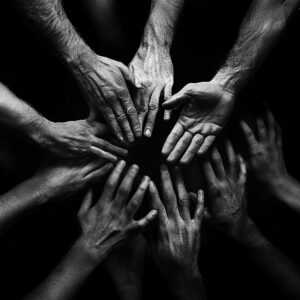'Intolerance' Ideas

Intolerance quotes have played a significant role in shaping the way individuals and society view and address issues of discrimination, prejudice, and injustice. These powerful words have inspired people to stand up against intolerance and fight for equality and acceptance. From historical figures l…Read More
Intolerance quotes have played a significant role in shaping the way individuals and society view and address issues of discrimination, prejudice, and injustice. These powerful words have inspired people to stand up against intolerance and fight for equality and acceptance. From historical figures like Martin Luther King Jr. and Mahatma Gandhi to modern-day activists, intolerance quotes have served as a source of motivation and courage. They have shed light on the consequences of intolerance and the importance of embracing diversity and promoting inclusivity. Despite the progress made, intolerance still exists, making these quotes as relevant and impactful as ever. They serve as a reminder to continue the fight against intolerance and strive for a more tolerant and accepting world.Read Less
Intolerance quotes have played a significant role in shaping the way individuals and society view and address issues of discrimination, prejudice, and injustice. These powerful words have inspired people to stand up against intolerance and fight for equality and acceptance. From historical figures like Martin Luther King Jr. and Mahatma Gandhi to modern-day activists, intolerance quotes have served as a source of motivation and courage. They have shed light on the consequences of intolerance and the importance of embracing diversity and promoting inclusivity. Despite the progress made, intolerance still exists, making these quotes as relevant and impactful as ever. They serve as a reminder to continue the fight against intolerance and strive for a more tolerant and accepting world.

Narrow 'Intolerance' Results By:
Intolerance + Resilience (1)
Intolerance – Symbolic Value
Intolerance is a concept that has been explored and discussed throughout history, with its symbolic value evolving over time. At its core, intolerance refers to the unwillingness or refusal to accept or respect beliefs, opinions, or behaviors that differ from one’s own. It is often associated with close-mindedness, prejudice, and discrimination. However, the symbolic value of intolerance goes beyond these surface-level definitions.Intolerance can also be seen as a symbol of power and control. In many cases, those who are intolerant hold positions of authority and use their beliefs to oppress and marginalize others. This can be seen in historical events such as the Holocaust, where intolerance towards the Jewish community led to the systematic extermination of millions of people. In this context, intolerance is a symbol of hate and violence, perpetuated by those in positions of power.
Intolerance – Cultural and Historical Significance
Intolerance has played a significant role in shaping cultures and societies throughout history. It has been used as a tool to justify discrimination and oppression, often based on race, religion, gender, or sexual orientation. In some cases, intolerance has been institutionalized, with laws and policies designed to exclude and discriminate against certain groups of people.One of the most significant examples of intolerance in history is the Salem Witch Trials, where individuals were accused of witchcraft and executed based on mere accusations and superstitions. This event highlights the dangerous consequences of intolerance and how it can be used to justify violence and injustice.
Intolerance – Common Themes in Motivational Contexts
Intolerance is often rooted in fear and ignorance. People who are intolerant tend to have a narrow worldview and are resistant to change. They may feel threatened by those who hold different beliefs or lifestyles, leading to a desire to suppress or eliminate them. This fear and ignorance can be fueled by societal and cultural norms, as well as personal biases and prejudices.In some cases, intolerance can also stem from a desire for power and control. Those who hold positions of authority may use intolerance as a means to maintain their dominance and suppress dissenting voices. This can be seen in political and religious contexts, where intolerance is used to silence opposition and maintain a certain status quo.
Intolerance – Portrayal in Art and Media
The concept of intolerance has been explored in various forms of art and media, including literature, film, and music. These mediums often depict the consequences of intolerance, highlighting its destructive nature and the impact it has on individuals and society as a whole.For example, Harper Lee’s classic novel “To Kill a Mockingbird” explores the theme of intolerance through the lens of racial discrimination in the American South. The story follows a young girl’s journey as she witnesses the injustice and prejudice faced by her African American neighbors. Through this narrative, Lee sheds light on the damaging effects of intolerance and the importance of empathy and understanding.
Intolerance – Impact on Understanding of Life and Society
Intolerance has a profound impact on our understanding of life and society. It creates divisions and barriers between individuals and groups, hindering progress and growth. It also perpetuates harmful stereotypes and prejudices, leading to discrimination and violence.On a personal level, intolerance can limit our ability to learn and grow. When we are closed-minded and unwilling to consider different perspectives, we miss out on valuable opportunities for personal and intellectual development. It also hinders our ability to build meaningful relationships and connections with others.In conclusion, intolerance is a complex concept with a deep symbolic value and a significant impact on our understanding of life and society. It is essential to recognize and challenge our own biases and prejudices to create a more inclusive and accepting world. As the famous quote by Mahatma Gandhi goes, “Intolerance is itself a form of violence and an obstacle to the growth of a true democratic spirit.”
